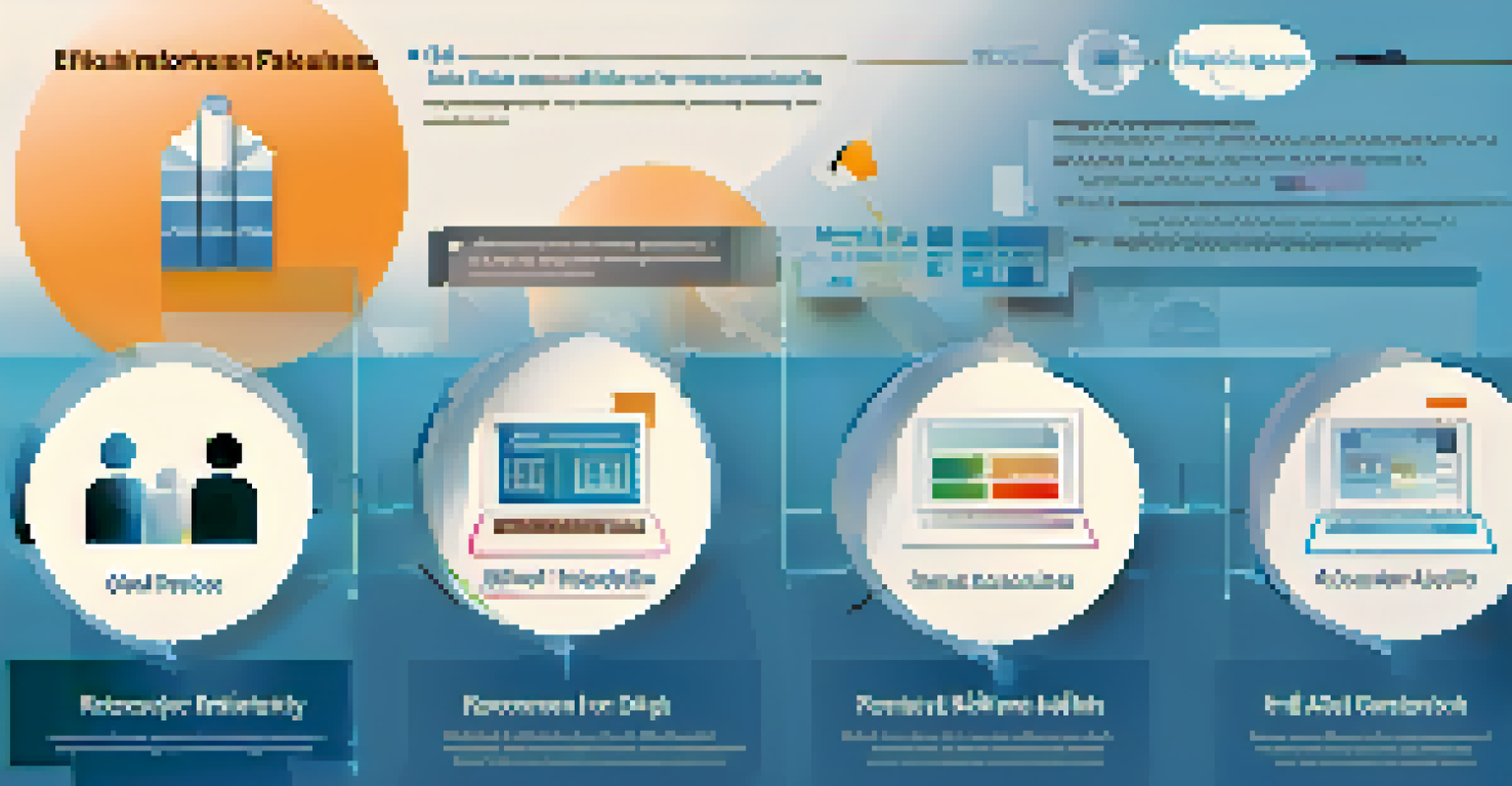Understanding Ethical Risks of AI in Educational Settings

Defining AI and Its Role in Education
Artificial Intelligence, or AI, refers to computer systems designed to perform tasks that typically require human intelligence, such as learning and decision-making. In educational settings, AI can enhance personalized learning experiences, automate administrative tasks, and provide real-time feedback to students. However, as we integrate these technologies, it's crucial to understand the broader implications they bring.
The real problem is not whether machines think but whether men do.
For instance, AI tools can analyze student performance data to tailor educational content, making learning more effective. Yet, this reliance on technology raises questions about data privacy and the accuracy of the algorithms being used. If these systems are flawed or biased, they could adversely affect students' educational journeys.
Thus, understanding the balance between leveraging AI for educational benefits and recognizing its potential pitfalls is essential. As we delve into the ethical risks of AI, we'll uncover ways to navigate this complex landscape responsibly.
Data Privacy Concerns in AI Applications
One of the foremost ethical risks of using AI in education is the issue of data privacy. Educational institutions often collect vast amounts of data on students, including academic performance, behavior, and even biometric data. When AI systems process this information, there is a risk of misuse or breaches, which can lead to significant consequences for students.

Imagine a scenario where a student's sensitive data is accessed by unauthorized individuals or mishandled by the institution. This not only violates privacy rights but can also impact a student's emotional well-being and academic performance. Therefore, safeguarding student data is not just a legal obligation but a moral one as well.
AI Enhances Personalized Learning
AI can tailor educational experiences by analyzing student performance data, making learning more effective.
To mitigate these risks, schools and universities must adopt strict data governance policies and ensure transparency in how data is collected, used, and shared. Educating students about their rights regarding data privacy is equally important, fostering an environment of trust and accountability.
Bias and Fairness in AI Algorithms
Bias in AI algorithms is another significant concern in educational settings. These algorithms are often trained on historical data, which may reflect existing inequalities and prejudices. As a result, AI systems can perpetuate or even exacerbate these biases, leading to unfair treatment of certain student groups.
It’s not that we use technology, we live technology.
Consider a situation where an AI tool is used to predict student success based on past performance data. If the historical data disproportionately represents certain demographics, the algorithm may unfairly disadvantage students from other backgrounds. This not only undermines the goal of equitable education but also risks losing talented individuals.
Addressing bias requires ongoing scrutiny of AI systems and the datasets they rely on. By continuously evaluating and refining these algorithms, educational institutions can strive for fairness and inclusivity, ensuring that every student has an equal opportunity to succeed.
The Role of Educators in AI Integration
As AI technologies become more prevalent in education, the role of educators is evolving. Teachers now find themselves not only delivering content but also facilitating the integration of AI tools in the classroom. This shift requires educators to be equipped with the necessary skills and knowledge to navigate these technologies effectively.
For instance, educators must understand how to interpret AI-generated data and use it to inform their teaching strategies. This empowers them to better support their students' learning needs. However, without proper training and resources, teachers may feel overwhelmed or underprepared for these changes.
Data Privacy is a Major Concern
The extensive data collected on students raises significant privacy risks that educational institutions must address.
By investing in professional development and fostering a collaborative environment, educational institutions can help educators embrace AI as a powerful ally in enhancing student learning. Ultimately, the human element remains irreplaceable in education, and educators play a crucial role in ensuring that AI is used ethically and effectively.
Accountability and Transparency in AI Usage
Accountability and transparency are critical components of ethical AI use in education. Stakeholders, including schools, parents, and students, must have a clear understanding of how AI tools function and the decisions they influence. This understanding fosters trust and ensures responsible AI implementation.
For example, if an AI system is used to determine student eligibility for advanced courses, parents and students should be informed about the criteria involved. Transparency in these processes helps mitigate concerns about arbitrary decision-making and reinforces the institution's commitment to fairness.
Creating a framework for accountability involves establishing clear guidelines on the use of AI technologies and regularly reviewing their impact on students. This not only enhances trust among stakeholders but also encourages continuous improvement in AI applications within educational settings.
The Importance of Ethical Guidelines for AI
Implementing ethical guidelines for AI use in education is essential for navigating the associated risks. These guidelines should address key issues such as data privacy, bias, and accountability, providing a framework for responsible AI integration. By establishing clear ethical standards, educational institutions can ensure that AI technologies align with their values and mission.
For instance, the development of an ethical AI charter can serve as a guiding document for schools and universities, outlining principles for fair and equitable AI usage. This charter can also encourage collaboration among educators, technologists, and policymakers to develop best practices in AI implementation.
Ethical Guidelines are Essential
Establishing ethical guidelines for AI use in education helps navigate risks related to bias, privacy, and accountability.
Ultimately, ethical guidelines empower educational institutions to harness the potential of AI while minimizing risks. By prioritizing ethical considerations, schools can create a learning environment that respects students' rights and promotes equitable opportunities for all.
The Future of AI in Education: A Balanced Approach
As we look to the future, the integration of AI in education holds immense promise. However, it is essential to approach this integration with caution and mindfulness of ethical considerations. A balanced approach involves leveraging AI's capabilities while safeguarding against potential risks.
For instance, educational institutions can pilot AI programs in a controlled environment, allowing for evaluation and adjustments based on feedback from educators and students. This iterative process ensures that AI applications are effective and aligned with educational goals.

By fostering a culture of ethical AI, educational institutions can not only enhance student learning experiences but also prepare them to thrive in a technology-driven world. The future of education will rely on our ability to navigate these challenges thoughtfully and collaboratively.